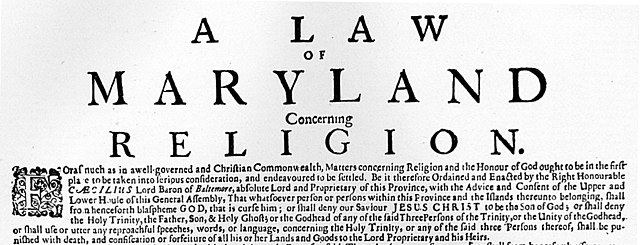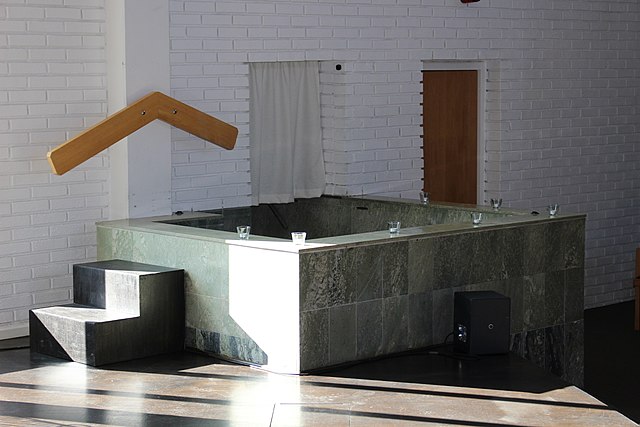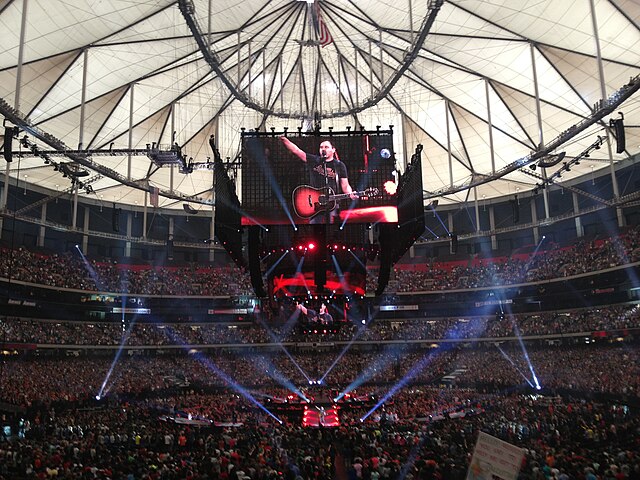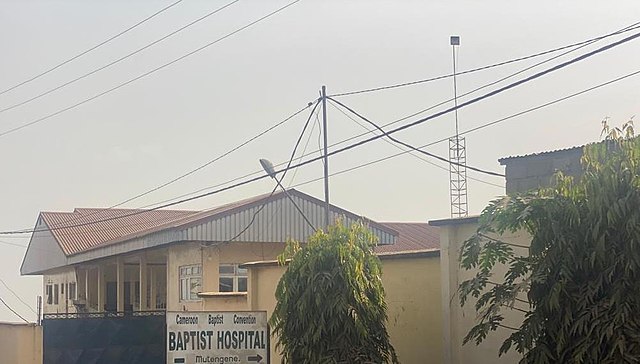Religion in the United States
Religion in the United States is widespread, diverse, and vibrant, with the country being far more religious than other wealthy Western nations. An overwhelming majority of Americans believe in a higher power, engage in spiritual practices, and consider themselves religious or spiritual. Christianity is the most widely professed religion, with most Americans being Evangelicals, Mainline Protestants, or Catholics.
Pilgrims Going to Church by George Henry Boughton (1867)
The Maryland Toleration Act secured religious liberty in the English colony of Maryland. Similar laws were passed in the Rhode Island and Providence Plantations, Connecticut and Pennsylvania. These laws stood in direct contrast with the Puritan theocratic rule in the Plymouth and Massachusetts Bay colonies.
A Congregational church in Cheshire, Connecticut
The Founding of Maryland (1634) depicts Father Andrew White, a Jesuit missionary in the left and colonists meeting the people of the Yaocomico branch of the Piscatawy Indian Nation in St. Mary's City, Maryland, the site of Maryland's first colonial settlement.
Evangelicalism, also called evangelical Christianity or evangelical Protestantism, is a worldwide interdenominational movement within Protestant Christianity that emphasizes the centrality of sharing the "good news" of Christianity, being "born again" in which an individual experiences personal conversion, as authoritatively guided by the Bible, God's revelation to humanity. The word evangelical comes from the Greek word for 'good news'.
Baptistery in the Pentecostal church (Pingstförsamlingen) of Västerås, in Sweden, 2018.
Passion Conferences, a music and evangelism festival at Georgia Dome in Atlanta, Georgia, United States, in 2013.
Hong Kong Baptist Theological Seminary, in Hong Kong, 2008.
Baptist Hospital Mutengene (Tiko), member of the Cameroon Baptist Convention.








